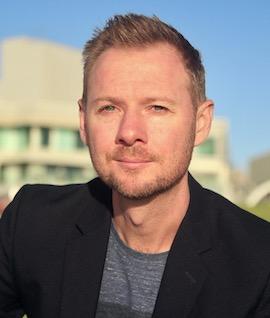With so many reports of imminent mass extinction and conflicting opinions on how to address climate change, it’s easy to feel helpless. For more than a decade, policies related to energy, mining, climate change and the environment have shaped the national debate, fuelling many of the leadership tussles that Australia is now so well known for. Reading the popular media alone, one may be forgiven for picking up the view that effective management of the environment is a luxury, something that is at odds with our aspirations for economic security. After all, we’ve all become familiar with the political phrase “it’s the economy, stupid”.
This, of course, is a false dichotomy. There are many examples of win-win outcomes where sustainable solutions are also good business, from local scales to regional and national. Decisions that impact upon how the environment works can benefit from an evidence-based approach to assessment, rather than ideology. In fact, some of the leading companies in Australia responsible for resource extraction and land development, are also some of the best environmental managers in the world.
That is not to say all users of the environment are doing the best they can, and it is important we continue to do more to protect our environment. Without question, we need strong regulations to prevent non-sustainable practices, and where damage is done, we need to use science and technology to fix it. WA is globally recognised as a biodiversity hotspot, which has already been heavily impacted by land degradation and a drying climate. It is important we are not complacent about the future pressures that we face. As with many of our nearest neighbours struggling with development pressures, doing nothing will lead to poor outcomes for the ecosystems we all hold so dear, and negatively impact upon our towns, cities and our economy.
But, solutions abound. New technologies and approaches, that take advantage of our best scientific knowledge of how landscapes and ecosystems work, require a new generation of environmental professionals able to use scientific evidence as the tool for identifying those activities that are acceptable, and how to repair damaged sites. For this reason, UWA is proud to announce the re-launch of our Master of Environmental Science program in Semester 2 this year. This has been redesigned to not only train scientists who understand how the environment works, but to train professionals able to work with industry and regulators to plan sustainable solutions. Importantly, we seek to provide our students with the interdisciplinary knowledge in environmental processes coupled with an understanding of economics and policy, so our graduates are experienced in navigating the increasingly complex science-policy interface.
A/Prof Matthew Hipsey
Environmental Science Program Coordinator

A/Prof Matthew Hipsey, Environmental Science Program Coordinator
Matthew Hipsey is an Associate Professor within the UWA School of Agriculture and Environment and member of the UWA Oceans Institute. He has multi-disciplinary experience in environmental science with a particular focus on understanding the drivers of water quality in lakes, rivers, estuaries and coasts. He has considerable expertise in water quality and aquatic ecosystem modelling, and has a keen interest in using big data and computer simulations to demonstrate how environmental systems respond to change.
Matthew is developer of several widely-adopted modelling platforms that are used to support environmental planning and decision-making, and his research team actively collaborates with industry and government agencies across Australia to recommend management strategies for the sustainable use of catchments and waterways. He has taught topics related to water science at UWA for the past 10 years, and is currently Program Coordinator of the Master of Environmental Science.